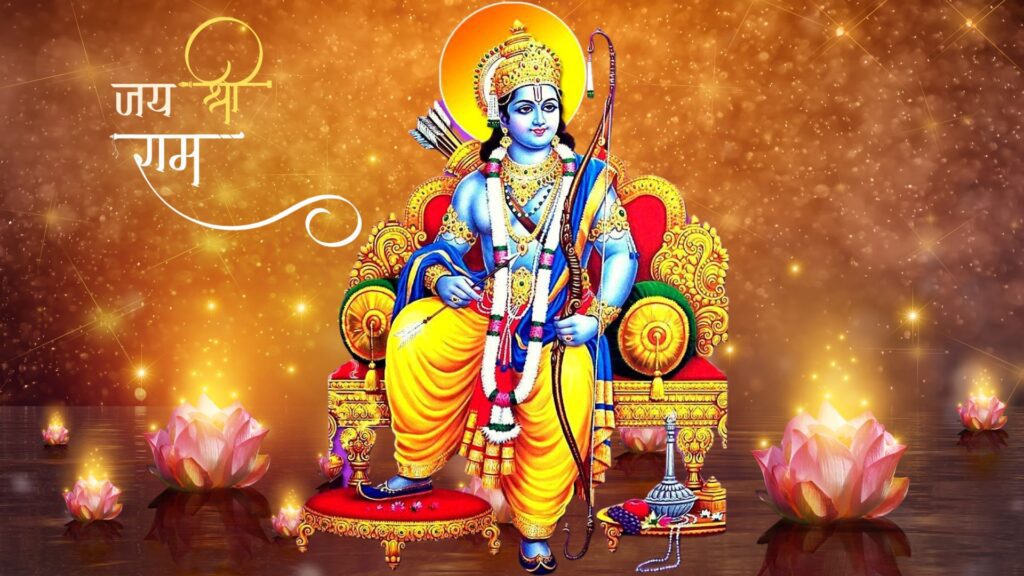Rama Ekadashi: Its Story, Mantra and Benefits
A Hindu religious observance, Rama Ekadashi, is also referred to as Rambha Ekadashi or Rambha Gyaras. It takes place on the eleventh day (Ekadashi) of the Krishna Paksha (dark fortnight) during the Kartik month of the lunar calendar. Devoted to Lord Vishnu, this observance is especially significant for devotees of Lord Rama.
Observants fast from dawn to dawn on Rama Ekadashi, abstaining from the consumption of grains and cereals. Traditionally, the fast is dissolved on Dwadashi, the twelfth day of the lunar month.
Prayers, recitation of sacred texts, and visits to temples devoted to Lord Vishnu or Lord Rama are the activities of devotees. As an expression of devotion and penance, numerous individuals observe this Ekadashi in an effort to gain the favor of Lord Vishnu and be absolved of their transgressions.
Rama Ekadashi is commemorated in accordance with a particular Purana legend that describes a monarch named Muchukunda who fasted during this period and received the blessings and liberation of Lord Vishnu.
The legend of Rama Ekadashi
The narrative pertaining to the myth of Rama Ekadashi is documented in the Hindu scriptures, specifically the Padma Purana. The following describes Rama Ekadashi in accordance with Puranic tradition:
Muchukunda, a once-mighty and noble monarch, was an ardent devotee of the Hindu deity Vishnu. King Muchukunda was an intrepid warrior who had participated in conflicts pitting the devas (gods) against the asuras (demons). Amid one such conflict, the gods encountered Kalayavana, a formidable demon. The heavens beseeched the aid of King Muchukunda, who courageously confronted and vanquished the demon. Owing to monarch Muchukunda’s exemplary service, the monarch of the gods, Lord Indra, bestowed upon him a unique blessing.
King Muchukunda sought leisure as a result of his battle-induced exhaustion. He beseeched Lord Indra to grant him the boon of uninterrupted slumber. He requested that any individual who disturbed him from his slumber be instantly reduced to embers with his gaze. After Indra complied with King Muchukunda’s request, he retired to a cave to enjoy an extended and rejuvenating slumber.
As fate would have it, thousands of years transpired on Earth during his slumber. Lord Krishna, who was an embodiment of Lord Vishnu, descended to earth during the Dvapara Yuga and facilitated the conclusion of his terrestrial existence. The Kali Yuga commenced subsequent to the disappearance of Lord Krishna, during which the world was afflicted by a multitude of tribulations and adharma (immorality).
Over the course of time, Lord Krishna’s Yadava lineage was involved in a decisive conflict that led to the downfall of the entire Yadava dynasty. A Yadava warrior named Kaalayavan, who had managed to survive the decisive conflict, was motivated by vengeance against his monarch for his demise. By unwittingly following in the footsteps of Lord Krishna, he entered the cave where King Muchukunda was sound asleep.
Due to his erroneous belief that the individual lying in the cave was Lord Krishna, Kaalayavan kicked King Muchukunda in an attempt to rouse him. Kaalayavan was instantly reduced to ashes by the fiery light emanating from King Muchukunda’s irises, thus fulfilling the blessing he had received from Lord Indra.
Upon awakening and beholding the devastation that had transpired, King Muchukunda came to the realization that Lord Krishna had fulfilled His earthly duties and incarnated. Regrettably, he made the decision to partake in spiritual practices and penance in order to achieve moksha, the ultimate state of liberation.
This legend is associated with Rama Ekadashi to emphasize the significance of devotion to Lord Vishnu and the importance of seeking spiritual growth and liberation through sincere devotion and penance. Observing Rama Ekadashi is believed to bring blessings, purity, and spiritual growth to the devotees.
Rama Ekadashi mantra:
Sri Rama Jaya Rama, Jaya Jaya Rama
This is a popular mantra dedicated to Lord Rama. Chanting this mantra is believed to invoke the divine energy and grace of Lord Rama.
Benefits of chanting these mantras and observing Rama Ekadashi include:
- Spiritual Purification: Chanting mantras and observing Rama Ekadashi helps purify the mind and spirit, allowing for a deeper connection with the divine.
- Devotional Strength: These mantras reinforce one’s devotion to Lord Rama and Lord Vishnu, helping to strengthen the bond between the devotee and the deity.
- Karma Cleansing: Fasting and prayers on Rama Ekadashi are believed to cleanse past sins and negative karma, paving the way for a more auspicious and virtuous future.
- Inner Peace: The spiritual practices associated with Rama Ekadashi can bring inner peace and tranquility, reducing stress and promoting mental well-being.
- Blessings and Protection: Devotees believe that by observing Rama Ekadashi and chanting these mantras, they can seek the blessings and protection of Lord Rama or Lord Vishnu for themselves and their loved ones.
#Ekadashi #Rama #Vishnu #Mantra #Ramaekadashi
